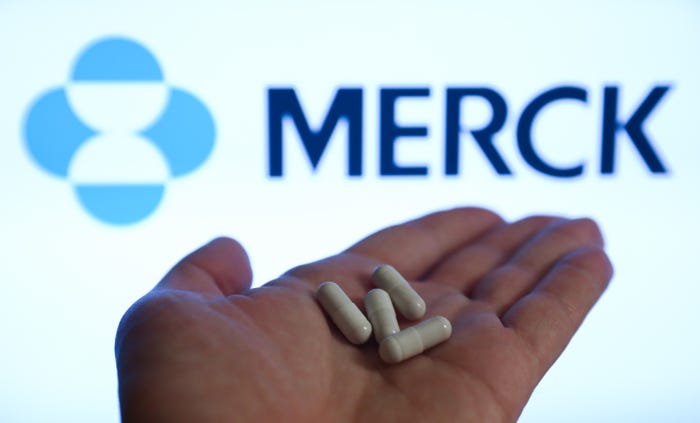The US Food and Drug Administration’s board of expert advisers narrowly voted on Tuesday to recommend that Merck & Co’s (MRK.N) antiviral pill for the treatment of COVID-19 be approved.
If the FDA approves the drug, it will be the first at-home treatment for the virus since the pandemic began. The FDA would presumably limit the authorization to people at high risk of contracting a serious disease, but they would select the exact group.
Merck released data last week that suggested the medicine was substantially less effective than initially assumed, with a 30 percent reduction in hospitalizations and fatalities in a clinical trial of high-risk patients.

“COVID-19 is still an emergency situation,” said committee member Dr David Hardy, who voted in favour of the drug. “There is a need for something like this. This is the first opportunity that an oral outpatient medication for mildly symptomatic to moderately symptomatic persons would be available. However, I do have questions about its overall longer-term efficacy.”
As the world continues to fight the coronavirus pandemic, suspicions about the new Omicron variant have raised concerns about the resilience of the global economic recovery.
Merck’s oral medication, molnupiravir, was developed in collaboration with Ridgeback Biotherapeutics and targeted a virus segment called the RNA polymerase, which hasn’t been significantly altered by mutations in the Omicron variant. If the variant threatens vaccine-induced and natural immunity, the pill – and a potentially more promising medicine being developed by Pfizer – could become even more crucial.

“If you look at the sequence of the of the RNA polymerase, the sequence of the Omicron variant is not very different from all of these other variants, so you would predict that it should be equally active,” Merck scientist Daria Hazuda said in an interview.
In a clinical trial, Pfizer Inc’s (PFE.N) competing drug Paxlovid showed an 89 percent reduction in hospitalizations and fatalities. Within the next few months, the FDA may consider it.
After examining reservations that the medicine could cause the virus to mutate and safety concerns regarding the possibility of birth problems, the FDA’s Antimicrobial Drugs Advisory Committee voted 13-10 to recommend that the agency approve the drug. However, the medicine should not be used during pregnancy, according to both FDA scientists and Merck.
“I think the FDA should not approve it for the use in pregnant women except under really exceptional circumstances,” said David Eastman, a biology professor at the University of California, Riverside, who voted yes.
“I think they should limit it to high-risk individuals.”

Several members stated the lower number of COVID-related deaths among those who got the medicine in the trial persuaded them to vote for recommending approval. For example, in the molnupiravir group, only one patient died, compared to nine in the placebo group.
Merck aims to produce 10 million treatment courses by the end of 2021, with at least 20 million by 2022.
The US government has signed a contract to purchase up to 5 million courses of medicine for $700 each. In comparison, the two-dose Pfizer/BioNTech vaccine cost the United States $20 per dosage.
Business Insider originally published this article.


